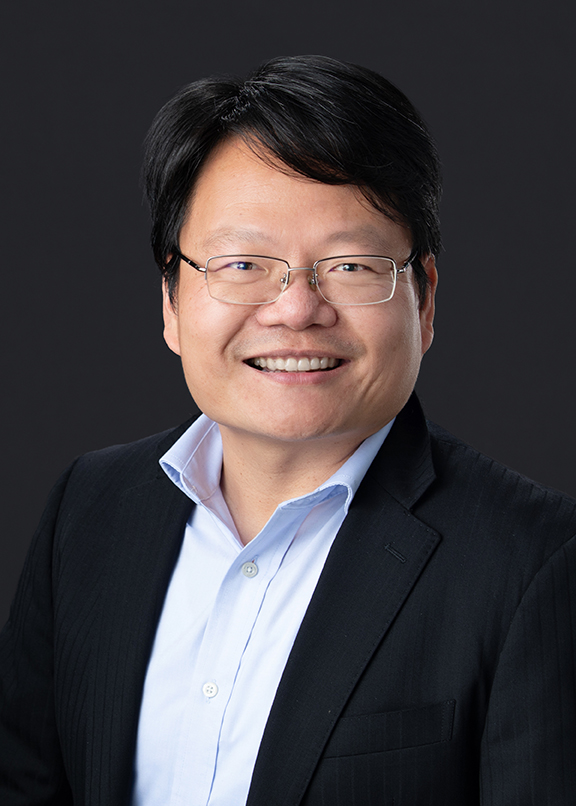
- Augusta University
- Centers & Institutes
- Immunology Center of Georgia
- The Chiang Lab
The Chiang Lab - Create. Innovate. Discover.
Who We Are
The Chiang Laboratory, directed by Dr. Austin W.T. Chiang, is part of the Immunology Center of Georgia at Augusta University. Our lab is dedicated to advancing the frontiers of bioinformatics, AI/ML, and systems immunology, with a strong emphasis on translational research.
Dr. Chiang is a computational biologist with expertise spanning biomedical informatics, multi-omics integration, and systems immunology. He received his Ph.D. from National Yang-Ming University in Biomedical Informatics and Systems Biology, and completed postdoctoral training at Academia Sinica and the University of California, San Diego. Before joining Augusta University in 2023, he served as an Assistant Project Scientist at UC San Diego.
Over the course of his career, Dr. Chiang has authored more than 50 scientific manuscripts, filed six patents, and collaborated widely with international leaders in immunology, systems biology, and biotechnology. His research bridges fundamental discovery science with applied biomedical innovation, particularly in the areas of immune regulation, therapeutic protein engineering, and computational drug discovery.

Austin W.T. Chiang, PhD
Assistant Professor
Immunology Center of Georgia
Jump to: What We Study Research Team Current Research Interests Publications
What We Study
The overarching mission of our lab is to understand how the immune system functions across different diseases and to leverage computational and experimental strategies for new therapeutic insights. We combine single-cell multi-omics, AI-based predictive modeling, and systems biology frameworks to investigate immune regulation, disease pathogenesis, and biomanufacturing.
Our research focuses on:
- Cardiovascular Immunology: Dissecting how immune tolerance breaks down in atherosclerosis and coronary artery disease, and identifying immune subsets that drive chronic vascular inflammation.
- Vaccine and Infection Biology: Investigating mechanisms of Staphylococcus aureus-mediated vaccine interference and identifying new pathways for effective vaccine development.
- Allergy and Autoimmunity: Studying eosinophilic esophagitis, systemic lupus erythematosus, and sarcoidosis to define molecular drivers of disease progression and therapeutic resistance.
- AI in Drug Discovery: Using advanced machine learning to develop predictive models for therapeutic design, early diagnostics, and vaccine strategies.
- Biomanufacturing and Glycobiology: Engineering mammalian cells and glycosylation pathways to improve therapeutic protein production and quality.
Research Team
The Chiang Lab is a multidisciplinary and collaborative environment that blends computational biology with experimental immunology.
- Principal Investigator:
-
- Dr. Austin W.T. Chiang – Assistant Professor, Immunology Center of Georgia, Augusta University.
- Postdoctoral Fellows: Conducting advanced research in T cell biology and single cell multi-omics integration.
- Graduate Students and Trainees: Pursuing projects in systems immunology, bioinformatics pipeline development, and human immunological disease modeling.
- Research Staff and Collaborators: Supporting immunological data analysis, big data analysis, and biomanufacturing initiatives.
We foster an environment of innovation, mentorship, and collaboration, and maintain active partnerships with researchers across the United States and internationally.
Current Research Interests
Immune Regulation in Cardiovascular Disease
- Single-cell analysis of T cell subsets in coronary artery disease.
- Mechanistic studies of immune tolerance and vascular inflammation.
Vaccine Failure and Pathogen Immunity
- Elucidating S. aureus-driven pathways that impair vaccine efficacy.
- Identifying molecular targets for next-generation vaccine design for human immunological diseases.
Allergic and Autoimmune Disorders
- Molecular profiling of human immunological diseases to uncover diagnostic biomarkers and therapeutic targets.
- driving chronic immune activation.
Artificial Intelligence for Drug Discovery
- Development of computational classifiers and predictive models for complex diseases such as CVD and cancer.
- AI-driven analysis of transcriptomics, lipidomics, and glycomics datasets to accelerate drug discovery.
Systems Biology of Biomanufacturing
- Engineering Chinese Hamster Ovary (CHO) cells for higher-yield, higher-quality therapeutic proteins.
- Systems-level analysis of glycosylation and secretory pathways for improved protein therapeutics.
Publications
- Roy, P., Bellapu, A., Suthahar, S.S.A., Oliaeimotlagh, M., Lyu, Q., Parashar, S., Makings, J., Wu, R., Kumar, S., Mehta, M., Chiang, A.W.T., Sette, A., McNamara, C.A., Ley, K. Loss of effector Treg signature in APOB-reactive CD4⁺ T cells in patients with coronary artery disease. Nat Cardiovasc Res. 2025.
- Jumabay, M., Abud, E.M., Okamoto, K., Dutta, P., Chiang, A.W.T., et al. Eosinophilic Esophagitis Drives Tissue Fibroblast Regenerative Programs Towards Pathologic Dysfunction. J Allergy Clin Immunol. 2025.
- Tsai, C.M., Hajam, I.A., Caldera, J.R., Chiang, A.W.T., et al. Pathobiont-driven antibody sialylation through IL-10 undermines vaccination. J Clin Invest. 2024.
- Pessentheiner, A.R., Spann, N.J., Autran, C.A., Ramms, B., Chiang, A.W.T., et al. The Human Milk Oligosaccharide 3-Sialyllactose Promotes Inflammation Resolution and Reduces Atherosclerosis Development in Mice. JCI Insight. 2024.
- Kulakova, L., Li, K.H., Chiang, A.W.T., et al. Glycoengineering of the hepatitis C virus E2 glycoprotein improves biochemical properties and enhances immunogenicity. NPJ Vaccines. 2025.